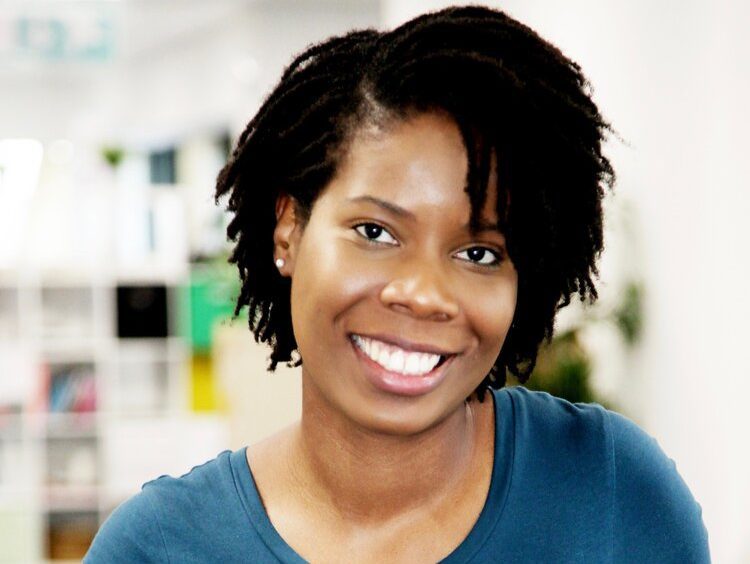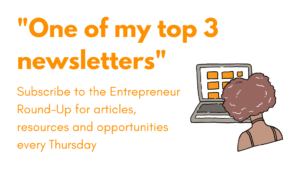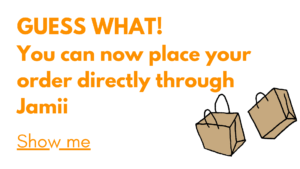Your Social Media Marketing Questions Answered: Interview With The Social Detail
Joyann Boyce, founder the social media marketing agency The Social Detail, is a self-proclaimed software and internet junkie. This means there’s no better person to answer our questions on the best online marketing practices for small businesses in 2020. Joyann gave us her expert insights and recommendations for anyone looking to power up their social media efforts.
Tell us about The Social Detail.
I am a self-proclaimed software and internet junkie. I come from a psychology background and just fell in love with all the things you can do on the internet, especially when it comes to social media.
I created The Social Detail close to three years ago and we manage our clients’ social media and everything behind the scenes, from accounts, to strategy, to data and helping people figure out who their target audience is online. We also do inclusive marketing, which means helping people understand how diverse their audience could be, how to reach them and speak their language.

What type of clients do you usually work with?
The people we work with ranges from charities, to small businesses, to larger organisations like The Prince’s Trust and big tech companies. It’s a wide range, but nowadays everyone has an audience online.
There are 6 main social networking platforms: Instagram, Twitter, Facebook, LinkedIn, TikTok and Pinterest. What are the differences between them?
It depends on where your audience is. If you want to gain awareness and use that capital to do other things, then spread yourself thin. But if you want to drive conversions – such as product-based businesses – go to Pinterest, Facebook and Instagram. Particularly, if your product isn’t photogenic, stick with the first two. With these two platforms, you can regenerate the same thing and have it be new to people, unlike Instagram. When you’re trying to drive traffic, you have to think about how they’ll consume it and if they’ll get bored of it. Pinterest is one of the best for products in the long term, as someone will pin something and return to buy it one year later. It’s for the long haul.
Does social media really impact sales or are followers more of a vanity metric?
This is where psychology comes in. These platforms are designed for people not to leave, which doesn’t mean you can’t make sales, but they want you to encourage conversions right there on the platform. So, make your account shoppable. Instagram will be rolling out a platform-wide shop very soon, and so will Facebook. However you can complete the transaction on the platform, the better.
My number one rule for any kind of content or action on social media is that everyone is lazy. You have to make them buy in the least clicks possible.
How much time and money should a small business invest in social media?
You can get so far with free tools but you get to the point where you should be valuing your time over the fact it’s free. Even though I have clients paying for them, I’ll always use the free tier to the point of frustration and I invest only when it’s time. The thing is, when you pay for something up front you don’t often value what you pay for, especially with tech products. Use the free tools until you’re absolutely ready to pay, and then you’ll value it more.
In terms of time, at The Social Detail we spend about two hours a day per client managing their projects. That equates to two hours of content creation, engagement and strategy. However, if you manage socials yourself there’s always the risk of focusing on daily engagement and bulking the other two. Especially if you’re new to it, try to plan everything two weeks in advance and then dedicate up to one hour a day to engagement. (This can be 60 minutes in one go, or ten minute intervals through the day). Find and curate the content, and spend a whole day scheduling it every two weeks. Content creation can be draining, but whenever you see something to repost, bank it.
How do you target content at demographics according to race, class or income?
There are three ways: tailored content, targeted hashtags, and targeted ads. Nowadays, tailored content is something many companies invest in, but when it comes to targeted hashtags it’s important to do your research to make sure the hashtags aren’t saturated. One example of a saturated hashtag is #BlackGirlMagic, whereas a less saturated one would be #BlackGirlMagicBristol.
When it comes to targeted ads, on Facebook you can target people based on postcode, which is a useful proxy for targeting by race, class or income, which Facebook in the UK doesn’t do. Depending on who my clients want to target, I put a stronger ad spend in certain locations, as in cities like Bristol and London it’s fairly clear where certain demographics live.
Ad targeting on Facebook takes a while to figure out, but start with boosting your posts and you will learn about the kind of ad spend you need, the click-through-rate, and so on. Creating a Facebook Manager account gives you access to Facebook Audiences which houses way more data.
Where should you focus your social media efforts if you’re a B2B business?
You want to focus more on the founder and where they are. However, if you’re a tech company, Twitter is key as your target audience will talk about topics relevant to your industry and ask questions. That’s where you can build a following.
In general, it depends on your goals for the platform. You can use Instagram to attract employees by showcasing your core values and office life. Buffer is one company that does this really well.
No matter what, you should always have a good Linkedin presence. That’s how you keep up to date with people, and it’s actually where most millionaires are. It’s good for reaching both customers and suppliers. If someone is engaging with you on Linkedin they are further down the business ‘sales funnel’.
How should service-based businesses, like personal coaches, use social media?
It’s all about your personal brand. You need to put your personality out there. If you’re a coach, stick to one platform and go hard, responding to your comments, addressing the issues your audience has and answering their questions.
I always ask, ‘do you want to be an Oprah or Steve Jobs?’. Oprah is the face of everything she does, and if you want to go down this route you need solid content, headshots, and the like. You’re the core of your own brand. Alternatively, Steve Jobs had a brand that was separate from his company, in which case you should strive to be an expert in your area, attending events and creating thought leadership.
How does a service-based business build credibility online?
Your credibility is based on you providing content and helping people. You have to give, give, give.
Draw attention to user-generated content, where your clients talk about your services and you repost it. You should also associate yourself with other credible people’s content, participating in their Instagram Lives, creating partnerships, commenting on their Linkedin posts and having someone credible engage with you. By doing this you’re collecting social currency from people who have higher capital.
What tools can you recommend for creating graphics, editing photos, scheduling posts?
Software and tech is my area and I tend to go through ten tools a month. Here are my suggestions:
Scheduling tools:
- Planoly (for Instagram): the free tier is good but if you have a product, invest in a paid account
- Later (for Pinterest and Instagram): allows you to post directly onto the platform, as well as providing analytics
- TweetDeck: (for Twitter): useful but Twitter on its own is also good enough
- Facebook has its own content creation studio and scheduling tool (showing again how it doesn’t want you to leave!)
- Hootsuite and Buffer are two other useful scheduling tools.
Content creation:
- Canva
- Photoshop
- Photos on Mac: useful for editing white balance
- VSCO: photo-editing app for mobile
- Mojo: video-editing app for mobile
- Snapped: photo editing app for mobile
- Insight: photo editing app for mobile
Video captions:
Is Facebook or Youtube better for ads?
Youtube has better retention as viewers have to watch the first five seconds of the ad to click past it; however, it is tricky as people tend to feel more saturated by ads on Youtube than on Facebook.
If you have the quality and budget to create a video ad, I say do it. With smaller budgets, stick to Facebook. Remember: on Youtube, the quality of your ad is being compared to the video clip you’re advertising on. On Facebook, you’re competing with people’s personal content, which is lower quality.
It is possible to create targeted ads. Youtube targeting is more based on interests than demographics, and so you wouldn’t be able to target a specific video but you would be able to target more general areas of interest, such as beauty.
How often should you post on Instagram Stories?
The question of ‘often’ is always tricky. On any platform it’s down to your own analytics, and when you’re starting out, post regularly to build this data.
On your Instagram business account, you can access your analytics. Use this to know when your audience is most active and post 30 minutes beforehand. Compare viewing figures for different posts throughout the day.
Do you have any tips or hacks for improving engagement?
One hack I use on Instagram Stories is hidden hashtags. All the text you create on your Instagram Stories is searchable, so create a text box and write 20-30 relevant hashtags, make it the same colour as the background, hide it and put it to the side.
What tips do you have for small businesses marketing during COVID-19?
Marketing right now depends on your messaging. You should still put your brand out there but I recommend creating a video message saying how you’re dealing with the situation and what your actions are. Putting a face to the message is the best bet. Be personal when talking about it .
Unless your product or service is directly affected, carry on business as usual. Change your language to talk about more digital tools, expose how you’re adapting and be more relatable (which you should be doing anyway).
Who does social media really well, in your opinion?
On LinkedIn, my mentor David McQueen does a great job. He’s consistent, engages with people and sticks to the 80/20 rule of content, meaning that 80% of his content is his own and 20% is reposts from others.
On Twitter, Vitae London is really on the pulse (they have a marketing agency). They play the founder-company game very well. Twitter is very ‘thirsty’ – it’s a platform that needs to be watered a lot.
On Instagram, TreasureTress does really well. Their tone of voice, engagement and relatable memes are always on trend and they’ve struck the perfect balance between creating interesting content and advertising their products. You can’t always be selling.
On Pinterest, there is a good podcast called Manly Pinterest, which is run by a man who wanted to disprove the idea that men couldn’t use Pinterest. He has some helpful insights and shows what users can do with analytics and how to make posts more ‘pinnable’.

What are your final top tips for businesses on social media?
Firstly, when you’re trying to market to your audience, the best thing you have as black and brown founders is the fact that you are part of the brand. Getting on camera and talking about your story is the best capital you have to compete. The thing about bigger brands is that they are fighting to create diverse content, but we can create it naturally. Be your authentic self with your wording and your content and you will stand out.
Secondly, don’t try and be everywhere for no reason – be on a platform with purpose. For example, on Twitter you should be relatable and engage with your audience; do not post Instagram content on Twitter! It’s time-consuming but you need to create tailored content for each platform.
Finally, enjoy it. Social media could be social; separate your personal account from your business one so that you consume on one and engage on the other.
